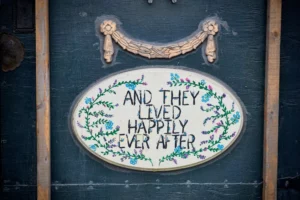It’s been a tough couple of weeks in the Holz household. Two Saturdays ago, we were celebrating my wife’s birthday at her parents’ house. By the time we left, I wasn’t feeling so hot. Actually, scratch that — I was feeling really hot, as in feverish. Came home, went to bed, woke up two hours later with a 102 degree fever and feeling like someone had replaced all my bodily fluids with concrete.
By Monday, the fever was creeping toward 104 degrees … high enough to make me wonder, I think I’ve got the flu. I trip to the doctor confirmed it. I, the only person who didn’t get a flu shot in my family, had Influenza A. The only upside was that I lost about 12 pounds in the next five days. The downside? My wife and two daughters were soon sick, too. The fact that they’d had their shots meant they were marginally less miserable than me. Still, four people in a house with Influenza is a recipe for exquisite misery … especially when you start having arguments about who’s most miserable. (That would have been me, but no one really wanted to hear that.)
While none of us were life-threateningly sick, I did at some foggy, feverish point reflect on the ol’ “sickness and health” marriage-vow clause. When you speak your vows on your wedding day, the whole sickness part of the deal is a bit of an abstraction. But with almost all of my family sick for the last two weeks (only Henry dodged it), I’ve realized anew that sooner or later, that part of our marriage vows is going to get tested. And marriage will increasingly be tested as the years pile on by other stresses, too. In those moments, holy matrimony doesn’t always feel particularly fulfilling. It feels, well, hard. Which is why the vow to stay married, to keep working on it, to stay faithful no matter what is so important — because those vows will be tested. In other words, marriage takes work if it’s to endure the inevitable hard points.
That message was reaffirmed in a surprising context earlier this week: the Oscars. Accepting his Best Picture award for producing (and starring in) the movie Argo, Ben Affleck rambled through a surprisingly honest speech in which he thanked his wife, actress Jennifer Garner, for her support. “I want to thank my wife,” he said, “who I don’t normally associate with Iran [the location where most of Argo takes place]. I want to thank you for working on our marriage for 10 Christmases. It’s good. It is work, but it’s the best kind of work, and there’s no one I’d rather work with.”
Often, Hollywood is guilty of making happily ever after look deliriously easy. Real love, many movies tell us, should be spontaneous and effortless, an effervescent, ever-present reality. And if at any point those feelings begin to fade, we’re subtly tempted to think it means that love wasn’t true in the first place. In a refreshing contrast, Affleck acknowledged reality: that a good marriage takes work. While some wondered if his admission was somehow inappropriate or even dishonoring of his wife, other observers noted that we could do with more of such honesty from influential celebrities. I especially appreciated what Salon.com writer Mary Elizabeth Williams had to say.
What Affleck did in that short speech — and the reason it was so surprising — is that he tore the veil off the perpetually sunny image we tend to carry around of everybody else’s couplehood. Unless the cops are getting called regularly for domestic disturbances, there’s an assumption of tranquil ease around other people’s relationships. Look at those two, in their Facebook album from their vacation, we think, They seem to really have it figured out!
Williams then continued her exploration of the challenges that marriages face through the years:
It’s easy in the beginning. As Chris Rock once explained, in the early part of a relationship, you’re not really dating each other — you’re dating each other’s ambassadors. You’re your best, sexiest, most novel selves. Then eventually the other sides begin to emerge — the imperfections and annoying habits and emotional baggage. Then, after all that, if you’re lucky enough to have what a friend calls mutually compatible neuroses, you’re going to go through experiences together, things that will require you to look at each other not just as breathless lovers. Sometimes, it’s really horrible stuff, like financial disaster and disease and addiction and grief and deployment and violence and crushing disappointment. Sometimes, it’s great stuff that nevertheless tests how you see and relate to each other — success, children, travel. And often, it’s just the unromantic, mundane business of domestic life.
She concludes,
Like many things in life, just because a relationship is good doesn’t mean it doesn’t take … a lot of effort. In fact, the effort is the good part. The lovely, wedding day dream that love is enough and you’ll always feel perfect and splendid forever is just that — a dream. The day-to-day can be boring and irritating and yet often, in the midst of all it, that’s exactly when you feel most deeply at home within each other. And maybe someday, when your mate is at your mom’s for Thanksgiving or accepting an Academy Award for best picture, he’ll start acting in a way that’s weird and makes people uncomfortable. That’s when you think, oh, right. That’s what I love about him.
That was a good reminder for me this week. Something I know and agree with, but still a reality I can easily lose track of when my fever tops out at 104 … and someone else needs me to get them a warm sippy cup of milk anyway to help them get to sleep.










